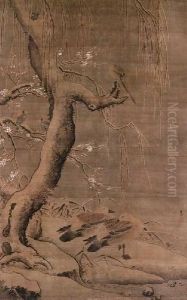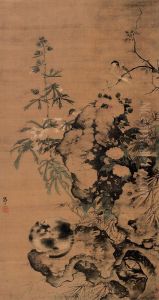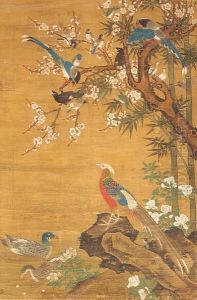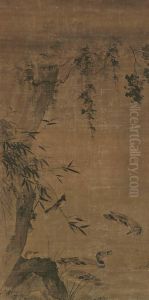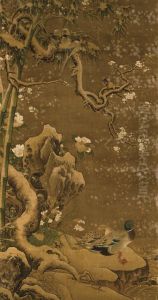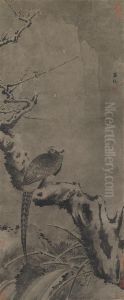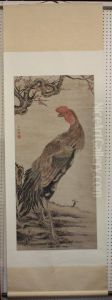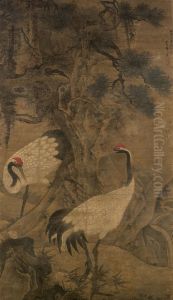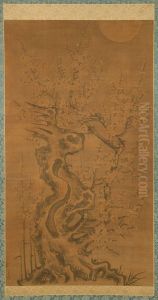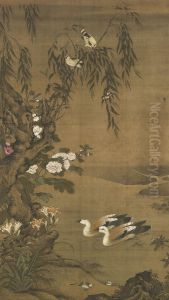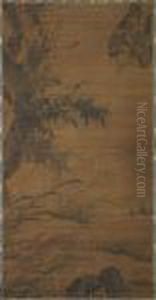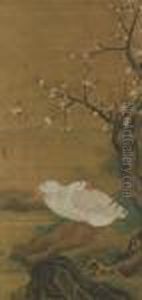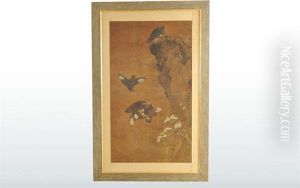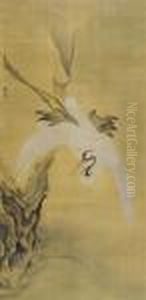Lu Ji Paintings
Lu Ji, also known as Lu Ji of Wu, was a Chinese writer, poet, and literary critic who lived during the Three Kingdoms period. Born in 261 into the prestigious Lu family in Wu County, Suzhou, his family had a strong literary tradition and was part of the scholarly elite of the time. His father, Lu Kang, was a general and governor under the state of Eastern Wu, and his grandfather, Lu Xun, was one of the most prominent statesmen and military strategists of the Three Kingdoms era.
Lu Ji's literary talents were evident from a young age, and he became well-known for his poetry and prose. However, his life was marked by the political turbulence of the period. The decline of the Eastern Wu state, which coincided with his lifetime, meant that Lu Ji lived through significant upheavals and witnessed the eventual conquest of Wu by the Jin dynasty.
Despite the political troubles, Lu Ji remained an influential literary figure. His most famous work is the 'Wen Fu,' or 'Essay on Literature,' a seminal text in Chinese literary criticism. In this work, he discusses the creative process and the principles of writing, offering insights into the nature of literary inspiration and composition. The 'Wen Fu' had a profound influence on subsequent generations of Chinese writers and poets and remains an important text in the study of Chinese literature.
Lu Ji's life was cut short when he became entangled in the political intrigues of his time. He and his brother Lu Yun were falsely accused of conspiracy and were executed in 303. Despite his untimely death, Lu Ji's contributions to Chinese literature have been long-lasting, and his works continue to be studied and admired for their elegance, insight, and historical value.
